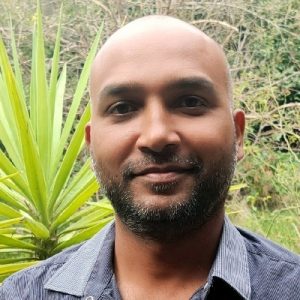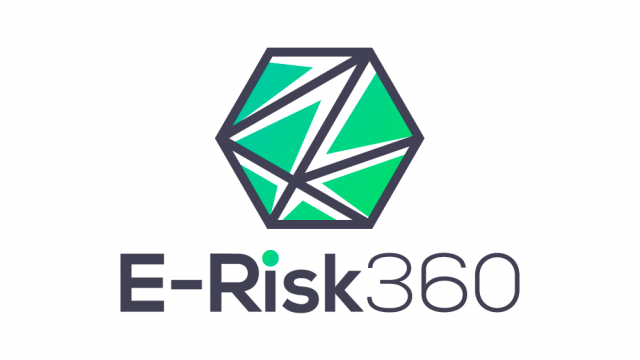Craig D’Souza is the managing director of E-Risk360 and a governance, risk management, and compliance professional with training across ISO management system assurance and certification. He is registered with Exemplar Global as a lead auditor in management systems including ISO 9001, ISO 14001, and ISO 18001/AS 4801/ISO 45001. Craig’s main areas of focus are in providing integrated risk management consulting, auditing, and training solutions across these areas, focusing on quality, environmental, and occupational health and safety risks.
He has worked with start-ups as well as across small, medium, and large global private and publicly listed high-growth ASX companies. In addition, he has worked at both the state and national levels of the Australian government.
In this conversation, we chat with Craig about his career pathway, the changes he has seen in the profession, and the core skills that auditors must have to be successful.
EXEMPLAR GLOBAL: How did you begin your career in management system auditing?
CRAIG D’SOUZA: It was a little bit unplanned. I had a couple of different competing interests earlier in my career—business development, sales and marketing, and some environmental auditing. In my first job out of university, I was doing a graduate program with the NSW Roads & Traffic Authority (RTA), where we were given the ability to audit. The RTA sponsored a lot of training, and I was lucky enough to have the opportunity to participate. Once I learned about auditing, I decided to stick with it in addition to pursuing many of those other areas of interest. So again, it was something of an unplanned career. But here I am.
EG: Tell us a bit about E-Risk360 and your role there.
CD: I’m the managing director of E-Risk360, which is a business that helps organizations manage their risk and compliance activities. We work with all organizations from small to medium to large, and we particularly enjoy w orking with highly innovative companies. The reason we exist is to problem solve, coming up with ways for our clients to do things better. Whether it’s regarding risk or various areas of compliance, we want to be at the forefront of solving problems.
orking with highly innovative companies. The reason we exist is to problem solve, coming up with ways for our clients to do things better. Whether it’s regarding risk or various areas of compliance, we want to be at the forefront of solving problems.
EG: Can you speak about the kind of training you’ve had and what it’s meant to your career?
CD: It’s been quite diverse. I’ve had some training, obviously, in lead auditing, covering quality management, occupational health and safety management, and environmental management. Prior to that, I achieved an undergraduate degree studying science (environmental science was my major) and business as well. So both science and business have been the foundation, the building blocks of my career. That science background has provided me with a level of curiosity that has served me well. I always wanted to know “Why” and critically analyze and test data to come up with a particular kind of hypothesis. That kind of hypothesis testing is no different from what we do in the auditing world, where we test evidence and hypothesize answers. So indeed, my training is effectively as a scientist and a businessperson alike.
EG: How has auditing changed over the course of your career and what further changes do you foresee in the years to come?
CD: That’s a good question. I’ve been in the industry for more than 10 years now, and over that period there have been some obvious changes. I’ve seen some interesting innovations, especially from the product point of view. For example, although I don’t usually like to give plugs to specific organizations, I will on this occasion because I’ve used this product and found it quite helpful: iAuditor, by SafetyCulture, is an innovative tool that’s been used by a number of auditors to streamline the auditing process, cut down the amount of time it takes to do an audit, and also automate certain things.
That’s one example of how auditors have had to adapt by using tools. Of course, there has also been a rapid shift in recent years to online platforms like Zoom and Microsoft Teams. Many assessments are now done online, especially document review and stakeholder interviews. There are benefits to this for the auditor and the auditee alike in terms of cutting down on time as well as cost.
As I say, there are lots of companies that are innovating within this space, especially in terms of capturing data and moving towards things like the Internet of Things (IoT) and Big Data. As auditors, it’s great to be able to look at an auditee’s documents online, but you don’t want to just look at those documents in isolation. There are other sources of information and evidence you can analyze using some of these off-the shelf tools and technologies.
EG: What would you say has been the biggest achievement over your career?
CD: I don’t think I necessarily have one big achievement; it’s more like an array of regular, small, consistent achievements. A lot of it is around being able to adapt, innovate, and keep up with technological change as well as the expectations of my clients. It really comes down to being able to deliver. In my consultative role, that means things like being able to help them achieve certification to a given standard. That could involve taking a small company that requires a quality and/or environmental certification and leading them from start to finish to achieve that certification. We want to make sure that the staff are well trained to grasp the meaning and intent of the standards in question. It’s basically just making sure that they comply and achieve their certification from start to finish and seeing that process through. I’m quite proud that my clients look at me as a trusted advisor where they consider some of the things I recommend and then make and implement certain changes. The results are these incremental improvements in the way they do their business, the way they run their processes, or how they standardize a particular kind of operation. These for me are the little wins and achievements that I’ve enjoyed along the way.
EG: What’s your perspective on training and its importance for those starting out in an auditing career?
CD: Training is super critical. It’s no different than getting a pilot’s license, for example. You need to know the theory, you need to be with some really sound trainers, you need to access the simulations, and you need to observe. You need to have all these skills and experiences before you can fly the plane. In auditor training, especially when you’re starting out, you need to make use of as many opportunities as possible and you try to learn as much as you can. I think it’s very important to get all those skills before you’re thrown into an audit where you need to understand how to deal with problems or when things go a little bit sideways. How do deal with these issues? Training is fundamental in preparing you to handle these situations. Just doing the simple things like observing and witnessing different auditing styles are important to becoming a good auditor.
EG: What advice would you give to people who want to pursue a career in auditing?
CD: I’d say talk to as many people as you can—and not just the auditors, but also people on the other side, people that are being audited. Talk to organizational leaders and operational people. Try to connect with people who have a diverse range of experiences within different industries. Never be afraid to ask how things are done as well as why things are done. The typical philosophy in auditing is to ask a “Why” question five times, and typically when you ask five times, you’ll uncover some of the problems. If you’re not afraid to ask those questions about why certain things are done in a certain way, that provides a good basis for being able to solve problems.
EG: Finally, given the importance of recruiting people into the auditing field, what’s your take on the skills, including the soft skills, that indicate someone might make a good auditor candidate?
CD: One core skill that I think is sometimes overlooked is the ability to build trust and rapport quickly with the auditee. They must be able to trust the auditor, and the auditor must earn that trust.
As a side note, I think it’s important to change the perception of auditing overall. The industry needs to justify itself in terms of being able to deliver value, and the way to deliver value is by having auditors who are skilled, tough, and fair. So, if you’re a skilled auditor, you want to work with clients who don’t just want a tick in a box but are willing to get your trusted advice to help drive improvements.
Getting back to your question about skills, I find it’s also critically important to form a sound basis for logical decision-making, gather evidence to show that you’ve got a valid argument, and pinpoint opportunities that the business can take on board to improve.
Auditors must put in the necessary work to succeed. You can’t just come in as an auditor and fly by the seat of your pants.
Our organization is always looking to take on board new auditors, especially those who can think critically and ask the difficult questions. We want to be at the forefront of solving problems and innovating within our space, and our people are key in helping us achieve that. Further developing that vision is a big part of what motivates me every day.

